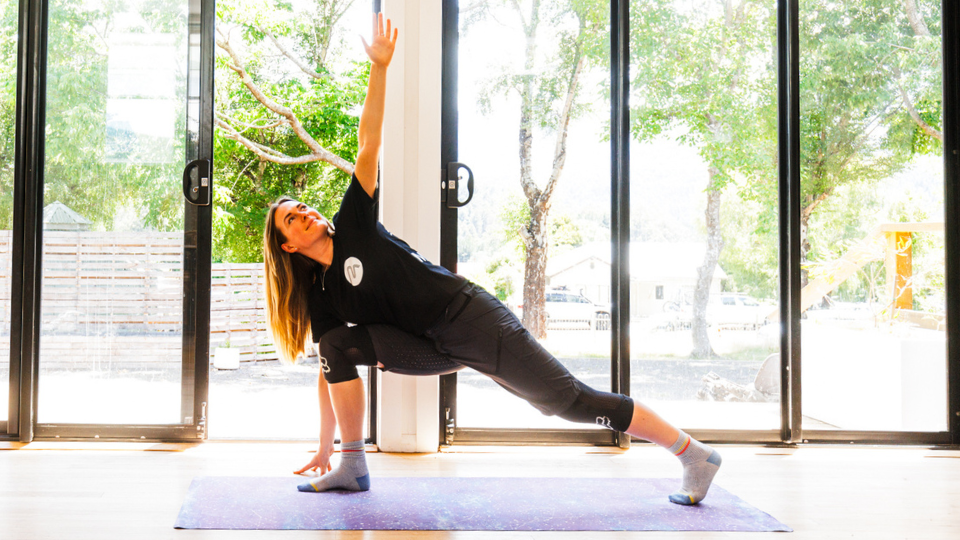
Exams can be stressful, and we can easily go into panic. Yoga, breath work and mindfulness are all great ways to manage exam stress. Below Robin shares 5 reasons to make time for yoga when you feel overwhelmed.
I got into yoga when I was 12 years old and found it to be a supportive hobby whilst I was at school and studying for exams. For me personally Yoga for exam stress really got me through what could have been a very overwhelming and anxious time.
Here are my top five benefits of practicing yoga as a way to manage exam stress.
Re-focus with brain breaks
Studying for exams can be such a struggle, trying to squeeze in as much time as possible to revise and do everything you can for the exam. Before long we can find ourselves reaching for that sweet treat or brain break to sustain our mental fatigue. The issue with reaching for sweet treats is that we have high peaks and drops in blood sugar which can affect our mood and give us mental highs and lows.
Practicing Yoga for exam stress is the perfect brain break when you’re feeling saturated or overwhelmed by revision notes.
By taking a quick 5-10 minutes to breathe, meditate, listen to a guided relaxation or play with some inversions, like headstand, can give you a refresh so that you come back to studying with more energy and concentration.
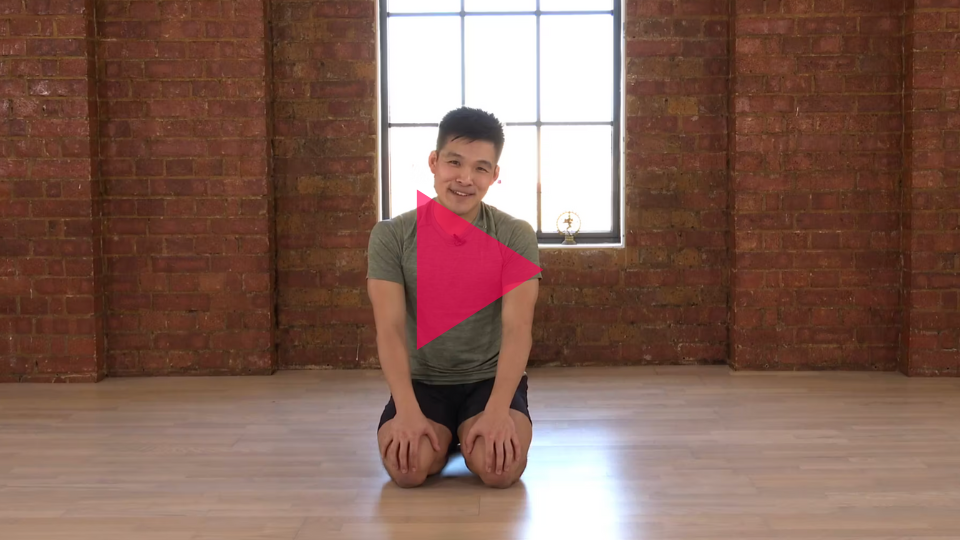
Try this Mental Reboot class with David Kam – Get back to focus and mental clarity! The ultimate coffee alternative to stimulate the brains back to focus. Perfect way to boost productivity and to take a break from the desk!
Perfect if you are short on time
One of my favourite things about yoga is that it is so easy to fit into daily life, you can get a lot from as little as 3-5 minutes, you don’t even need any equipment, and you can even do it from your desk!
This makes yoga a great tool for life as you can incorporate breathing, relaxation, philosophy and mind-body awareness on the bus on your way to school, when you are sitting at the desk during your exam and in the bathroom if you need a little break/reset in the day. This is another reason yoga is such a great tool for exam stress.
Try this Yoga for Exam Stress course with Robin. This course helps you to manage your anxiety and ensure that you present the best version of you. It is 10 classes, for all levels, offering tools to manage exam anxiety and techniques to find calm.
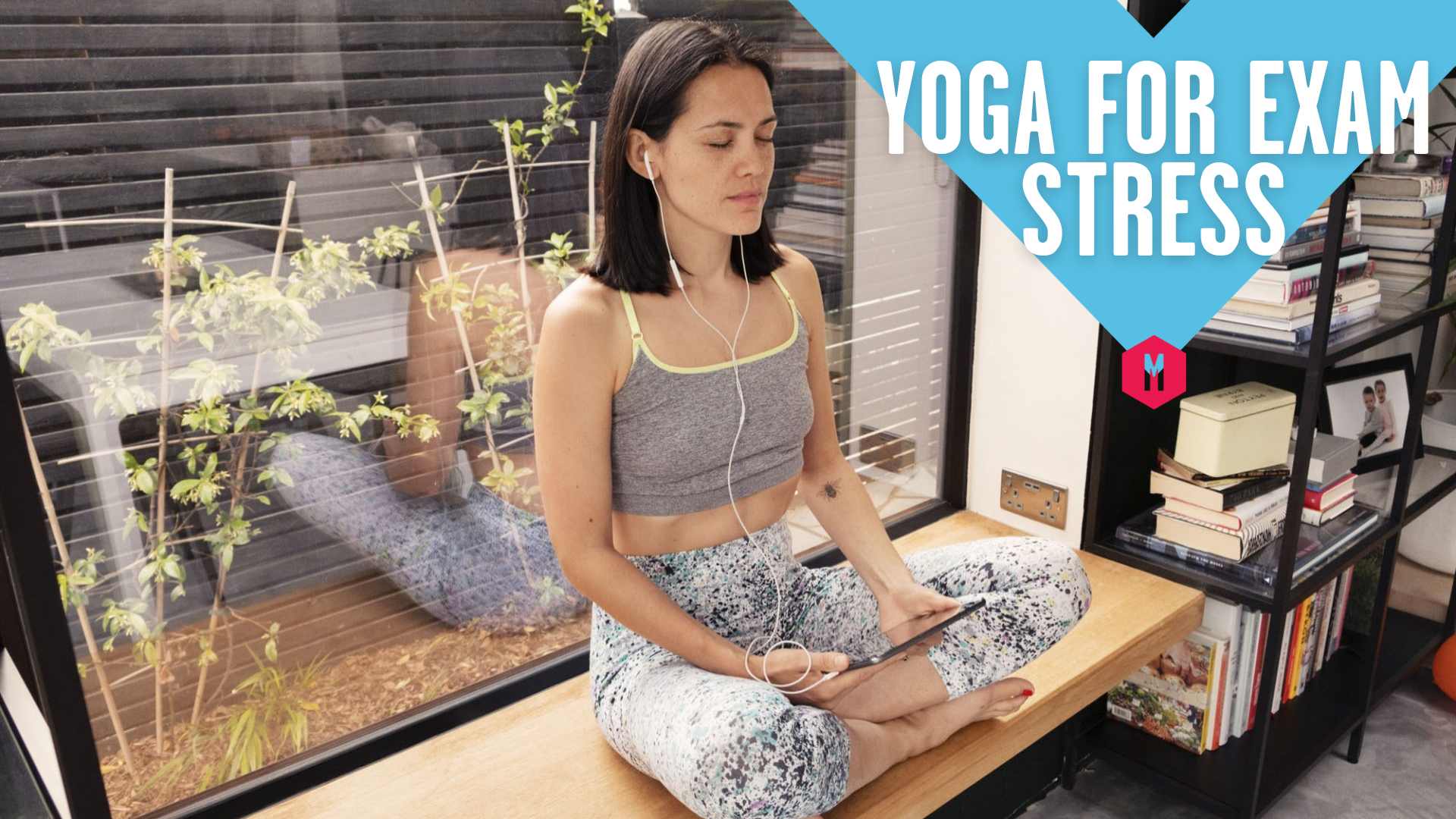
Believe in yourself and face your fears
Exams often bring a sense of fear.
We can have thoughts such as: Will I be good enough? Will I remember everything? What If I fail? Will my parents be annoyed at me? Will I be able to get into the college, apprenticeship, sixth form or uni that I want to attend?
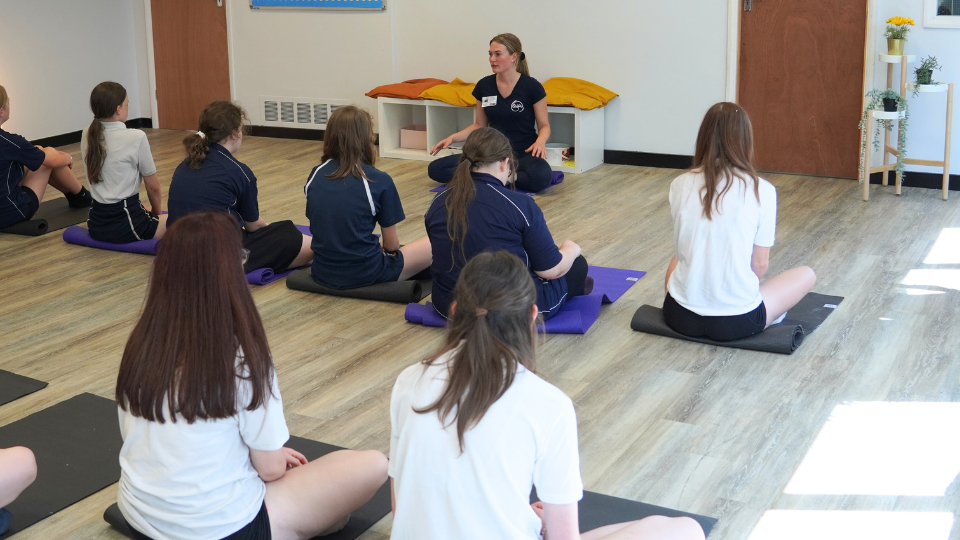
This fear can make it challenging to sleep. We can switch off and have a hard time enjoying social time. Exam stress can affect our health and sometimes results in overwhelm, meltdowns and burnout.
Affirmations and Intentions
There is a practice in yoga for exam stress called affirmations and intention setting which can be really helpful.
In Yoga for Exam Stress (4): Affirmations Workshop Part 1, we learn to listen and notice what thoughts we are having and the effects those thoughts have on us physically and emotionally.
For example, if I am thinking I am going to fail my exam, I may notice my heart rate rise and my shoulders and jaw tighten. If this thought becomes the running narrative to form my belief it could lead to me either panic and over work which could result in burnout or could lead me to give up and think it’s not worth trying as I’ll fail anyway.
Having awareness of our thoughts helps us to not take every thought as a fact or reality, instead we start to examine and more consciously choose our thoughts.
In Yoga for Exam Stress (5): Affirmations Workshop Part 2, we can start to create new, positive thoughts that help us to stay motivated, focused and positive as we study. For example “I am good at (insert subject) and I am getting better every day.”
The important thing with creating an affirmation is to phrase it in the present tense, as if it has already happened.
When you repeat it mentally or aloud, say it with belief and conviction as if it were true. You can then add your affirmations into your routine. Perhaps you could write them on post sticky notes and stick them on your bathroom mirror so you repeat them when you brush your teeth, for example.
Thoughts are not facts. So why do we take them so seriously?
Create a Sustainable yoga practice and routine
Overworking isn’t sustainable and doesn’t lead to more success.
There are only so many hours in the day. We know that we need eight hours to sleep, a couple of hours to eat and at least a few hours to exercise/rest and connect with friends and family. We also need to work and do the best we can with the remaining hours we have, completing the most important tasks first and then leaving space for other less crucial duties, if time permits.
It’s all about working smarter not harder and I think yoga can really help us care for ourselves. Yoga for Exam Stress (7) Relaxation Class: An Essential Moment to Pause reminds us of the importance of taking time to rest and recharge so that we can be at our best.
The importance of sleep
It can be hard to switch off and sleep if we are feeling worried and stressed in the lead up to exams.
For days when you feel really wired, gentle stretches of the spine and legs, paired with deep breaths can be beneficial. Try inhaling for 3 and exhaling for 6, or building up for 4 and 8 counts. This is really good for stimulating the parasympathetic nervous system also known as rest and digest, which will help your body switch from the fight or flight response. The fight or flight response is also known as the sympathetic nervous system, which is the nervous system we are in when we are stressed.
Yoga can be an effective tool to unwind and fall asleep. Practices such as yoga nidra and guided relaxations, such as Yoga for Exam Stress (9): Relax & Sleep into Greatness can be effective and you can practice them as you lie in bed.
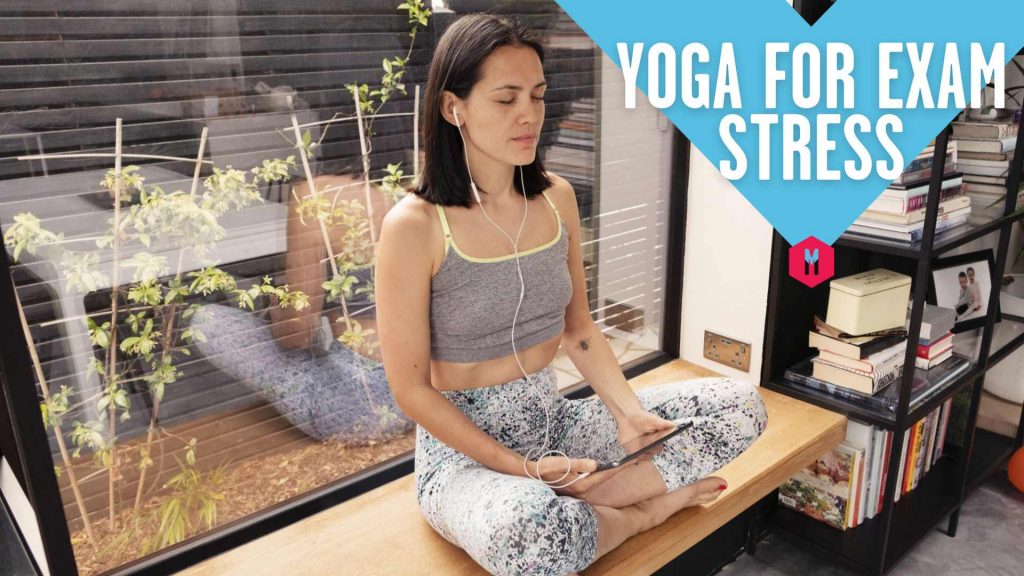
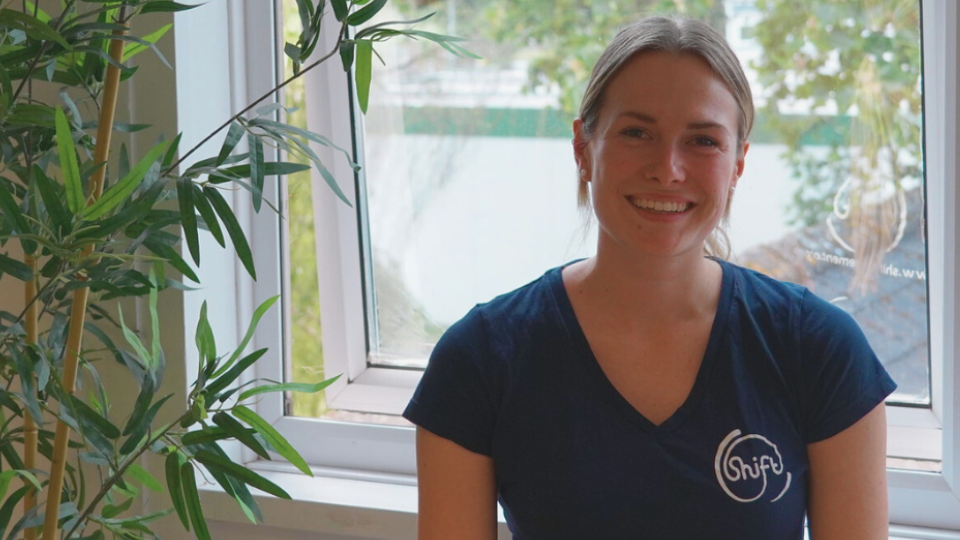
Robin Watkins-Davis‘ teaching style is based on the traditional Sivananda Hatha yoga sequence and adapted slightly to make it comfortable, relevant and accessible for young people.
Robin keeps classes scientific, fun and neutral in terms of descriptions and spirituality to keep her teachings open and accessible.
Her focus is to share powerful tools which enhance the wellbeing, relaxation and empowerment of teens.
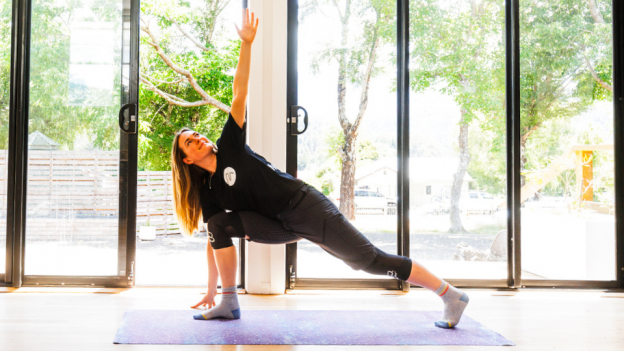




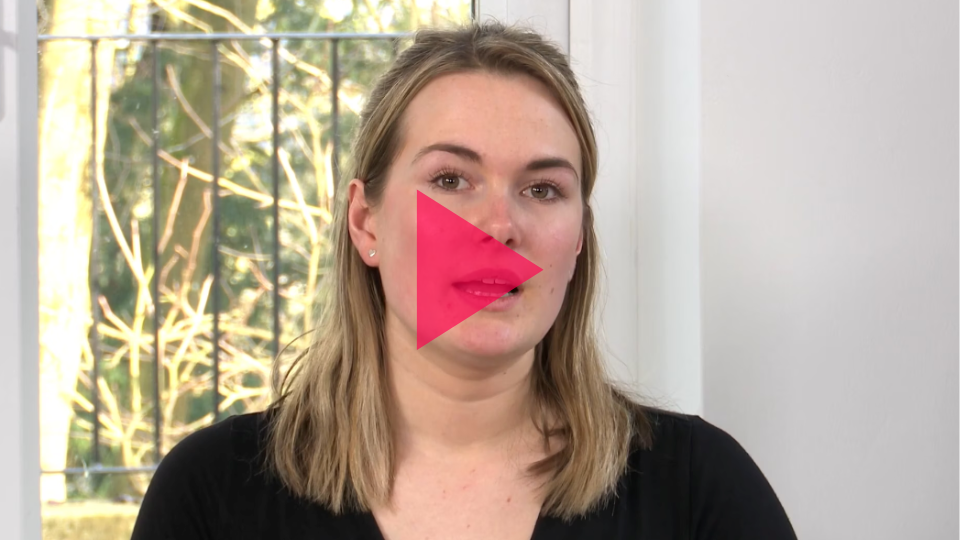
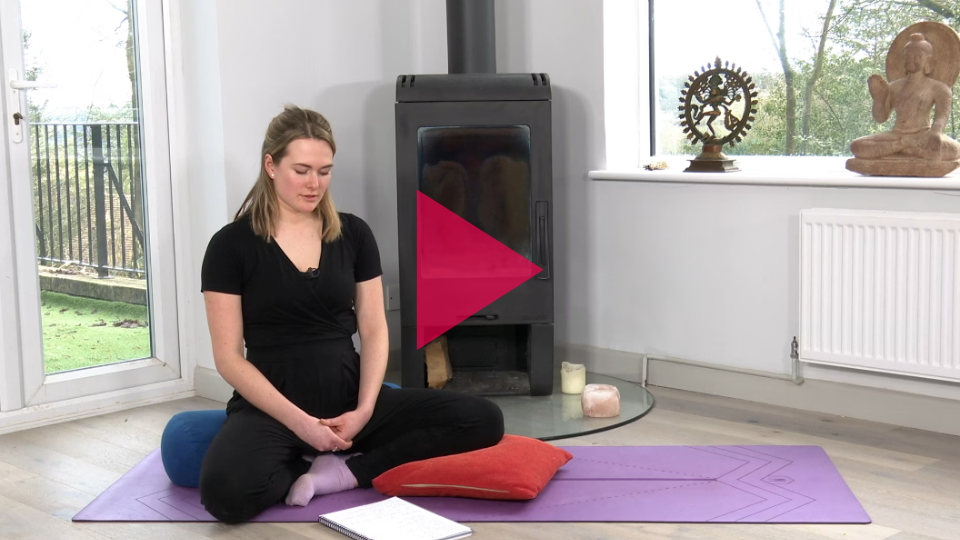
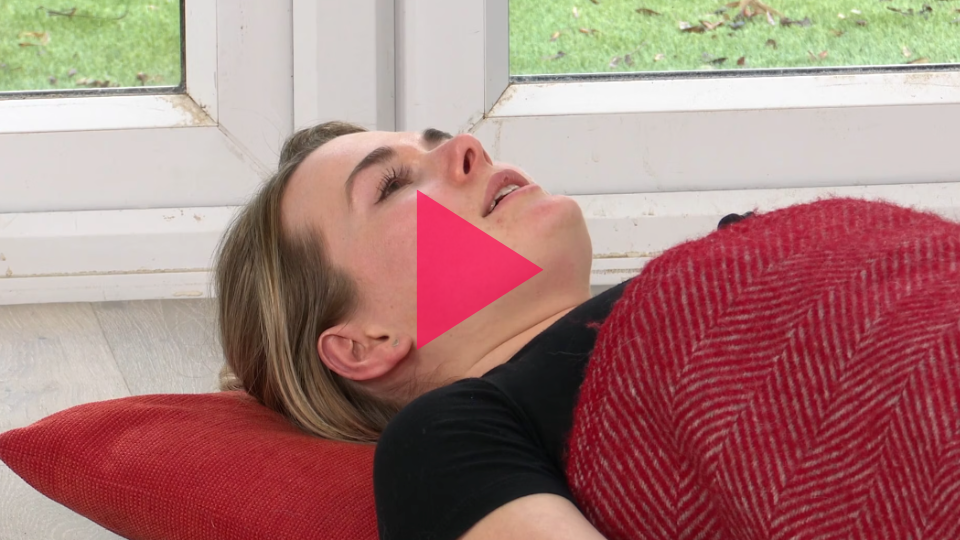
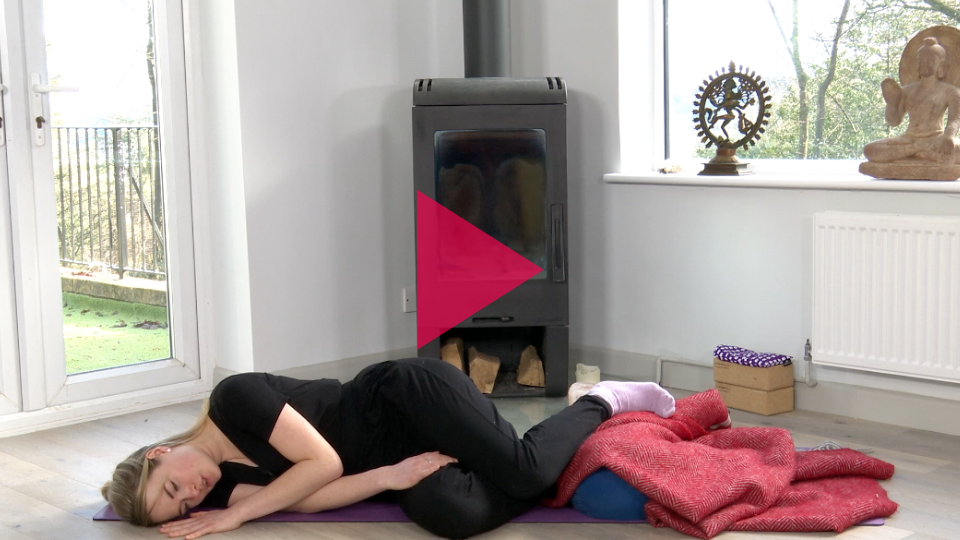
Leave a Reply